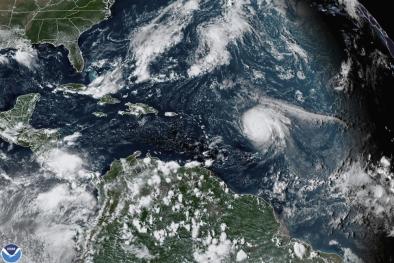Science Source
Record-Setting Ocean Warmth Continued in 2019
- States that human-emitted greenhouse gases (GHGs) have resulted in a long-term and unequivocal warming of the planet
- States that — because the oceans are the main repository of the Earth’s energy imbalance — measuring ocean heat content (OHC) is one of the best way to quantify the rate of global warming
- Presents new OHC data for the year 2019
- These data reveal that the world’s oceans (especially at upper 2000 m) in 2019 were the warmest in recorded human history
- Finds that the ocean heat anomaly (0−2000 m) in 2019 was 228 Zetta Joules (ZJ, 1 ZJ=1021 Joules) above the 1981−2010 average and 25 ZJ above 2018
- Finds that the evolution of OHC shows that the upper 2000 m OHC in 2019 was 228 ± 9 ZJ above the 1981–2010 average
- The past five years are the top five warmest years in the ocean historically with modern instruments, and the past ten years are also the top ten years on record
Related Content
Science Source
| Science of The Total Environment
A quantitative analysis of marine heatwaves in response to rising sea surface temperature
Headline

Mar 22, 2023 | Washington Post
Earth’s oceans are showing early and surprising record warming
Headline

May 25, 2022 | Climate Nexus Hot News
NOAA Forecast Busier Than Average Atlantic Hurricane Season For 7th Year In A Row
Science Source
| Advances in Atmospheric Sciences
Another Record: Ocean Warming Continues through 2021 despite La Niña Conditions
Lijing Cheng, John Abraham, Kevin E. Trenberth et al


